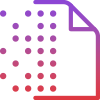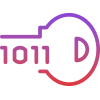
NFT Marketplaces

What Is an NFT and Why Is It Important?
NFTs are digital assets, each of which is unique and irreproducible. But why not just save a copy of the file and treat it as unique? The fact is that NFTs use blockchain technology to prove ownership and origin. NFTs, in turn, give digital assets value and authenticity.
Drawing on experience in developing metaverses and expertise in blockchain technology, RedPill Studios provides clients with the opportunity to create their own marketplaces for NFTs.
NFT Marketplaces: Portal to the World of Unique Digital Assets
What are NFT marketplaces? These are online platforms where artists and collectors can meet, exchange, and monetize their unique digital assets. These platforms have become a bridge between the real and virtual worlds, allowing everyone to explore new horizons of the digital ecosystem.
By developing NFT marketplaces, our team not only provides access to digital assets, but also creates an exciting visual journey for users. Our platforms are a representation of creativity and innovation.

Basic Steps in Developing an NFT Marketplace

User Experience (UI/UX) Creation
Our development team pays special attention to the first impression. We create interfaces that are not only attractive, but also easy to use.

Smart Contract Coding
Smart contracts are the heart of the NFT marketplace. We write them with care and detail to ensure reliable operation of the entire system.

Integration of the Backend and Frontend
We stitch together the backend and frontend of the marketplace, enriching it with additional functions and capabilities.

IPFS and DB Setup
Secure data storage is our priority. We use IPFS and a database to ensure the security of user data and NFTs.

Smart Contract Audit
Transparency and security are our greatest assets, and we offer smart contract audit services to ensure their reliability.
RedPill Studios: Masters of NFT Metaverses
We provide end-to-end development and strive to ensure that every detail works flawlessly. Our track record includes creating the NFT marketplace for Chimeras, which has become a home for unique digital assets. We provided an API for integration with other platforms, created a flexible admin panel, and implemented smart contracts to ensure the seamless operation of the platform.
RedPill Studios is not just a company, it is a guide to the world of NFT marketplaces. We are proud to help clients bring their ideas to life, and we do it with dedication and passion! Join us in the exciting world of NFTs and make your unique mark on the history of digital assets!






